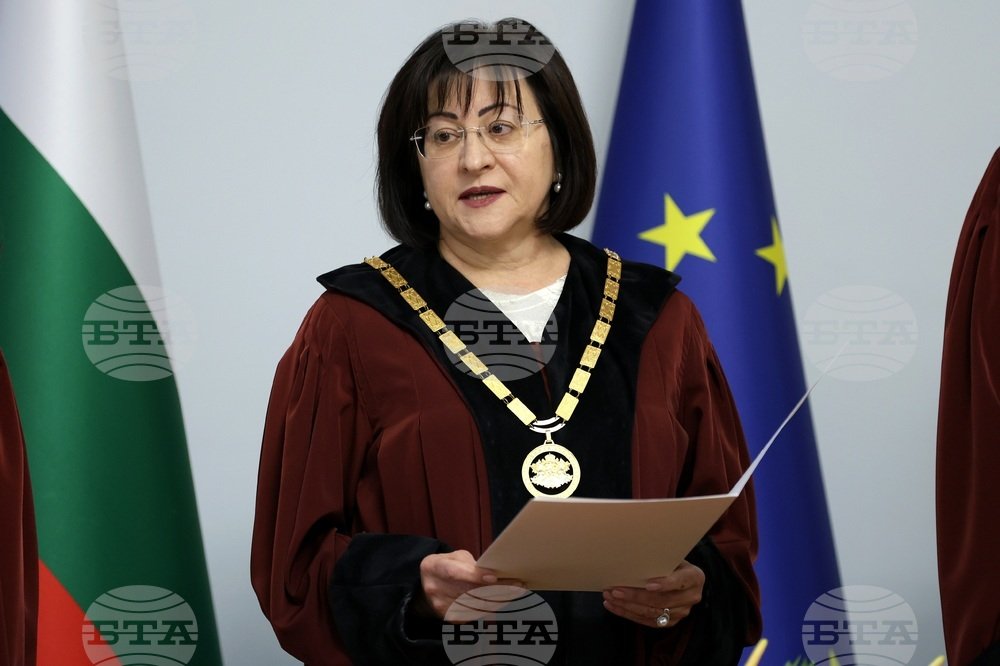By Antony Todorov, New Bulgarian University.
On March 13, 2025, the Constitutional Court (CC) of Bulgaria declared the election of 17 deputies to the National Assembly in the October 2024 elections illegal. At the same time, it obliged the Central Election Commission (CEC) to recalculate the distribution of mandates in parliament. The decision of the CC was expected for a long time; by law, the court should have ruled within two months, but it was delayed due to the need for detailed expert opinions.
The constitutional case was filed on the basis of five complaints against the announced election results, which the court merged into one, requesting an expert opinion on the results in over 2,200 polling stations (out of a total of nearly 13,000). The Court found that physical ballots were missing in two of the sections (the polling stations) , that some of the paper ballots were visibly filled in with the same handwriting, as well as discrepancies in some protocols with the number of ballots actually cast.

After the decision, the CEC carried out the recount and 16 new deputies took the place of the canceled deputies, and at the same time a new group of 10 deputies entered the parliament with the lists of the Velichie party. This small party was founded in 2024 with a nationalist and anti-corruption ideology, and has now announced that it will be in opposition.
The early elections of October 2024 were the second in 2024 and the seventh since 2020. After this long series of inconclusive elections for the National Assembly, participation remained relatively low (39% of voters). Eight party lists entered parliament, and the Velichie party then remained below the electoral barrier of 4%, falling short of 21 votes.
Political fragmentation once again made it difficult to form a government majority, and after many attempts (the time frame is relatively limited), a government was formed headed by Rosen Zhelyazkov from the centrе-right GERB party. The majority included also the Bulgarian Socialist Party (BSP) and the There is Such a People party, a populist party founded in 2016 by an influential showman. The majority is supported by the Aliance for Rights, a party organized after the split of the Movement for Rights and Freedoms, the party of Muslim and Turkish minority in Bulgaria. The paradox of the government majority is that these parties were among the most vocal critics of GERB’s long-term rule (since 2009), marked by corruption and the use of the prosecutor’s office as a political tool against inconvenient politicians and businessmen.
However, the October 2024 elections were described by many observers as extremely poorly organized and burdened with electoral fraud and vote-rigging. The Constitutional Court decision showed that almost 10,500 members of the Sectional Electoral Commissions (13.5% of all polling stations) were replaced at the last minute with people who had not been previously trained. In many places, fraud was detected with additions to protocols, with filling out ballots on behalf of citizens who did not show up to vote, with additions to protocols by the Sectional Electoral Commission.
On the eve of the Constitutional Court’s decision, however, the prosecution also intervened in the process. Referred to by the head of the state-owned company “Information Services”, which summarizes the votes cast in the elections, the prosecution demanded from the constitutional judges all documents submitted to them in connection with the verification of the legality of the elections. Competent lawyers immediately stated that the prosecution could not control at all the Constitutional Court. Observers saw an attempt to subordinate the Court by the lobby of Delyan Peevski, for years pointed to as an emblem of political corruption in Bulgaria. According to the expertise of the Constitutional Court, from the checked sections, the most votes rejected as illegally counted were cast for the party led by him, which emerged as a result of the split of the Movement for Rights and Freedoms (MRF).
The reactions of the political parties were not long in coming. The new redistribution of seats reduces the current government majority from 126 to 121 (out of a total of 240 MPs), which greatly complicates the work of the difficultly formed government. The parties in the government reacted differently. GERB leader Boyko Borisov suspected President Rumen Radev of sabotaging the government. BSP and ITN criticized the Constitutional Court for nullifying the results of the sections for which it turned out that the paper ballots cast had disappeared, but there were filled in results in the election protocols. The far-right nationalist party Vazrazhdane as well as other nationalists from the smaller parties in parliament demanded the cancellation of the elections in their entirety and new elections. The right-wing liberal coalition PP-DB, as well as President Radev, sided with the Constitutional Court and were critical of the prosecutor’s office.
From now on, things are in the hands of legislators – whether they will find a good solution to the accumulated problems with the elections, such as the return of machine voting everywhere and taking into account the machine result, as was introduced in 2022, stricter rules for the appointment and training of Sectional Electoral Commission members, and real countermeasures by the prosecutor’s office against election fraud.
__
Antony Todorov is a political scientist and a professor at the New Bulgarian University. He was visiting teacher at ULB (Brussels) and at the University of Bucharest and president of the Bulgarian Political Science Association from 2001 to 2012. His research interests lie in democracy, party politics, and the study of elections.